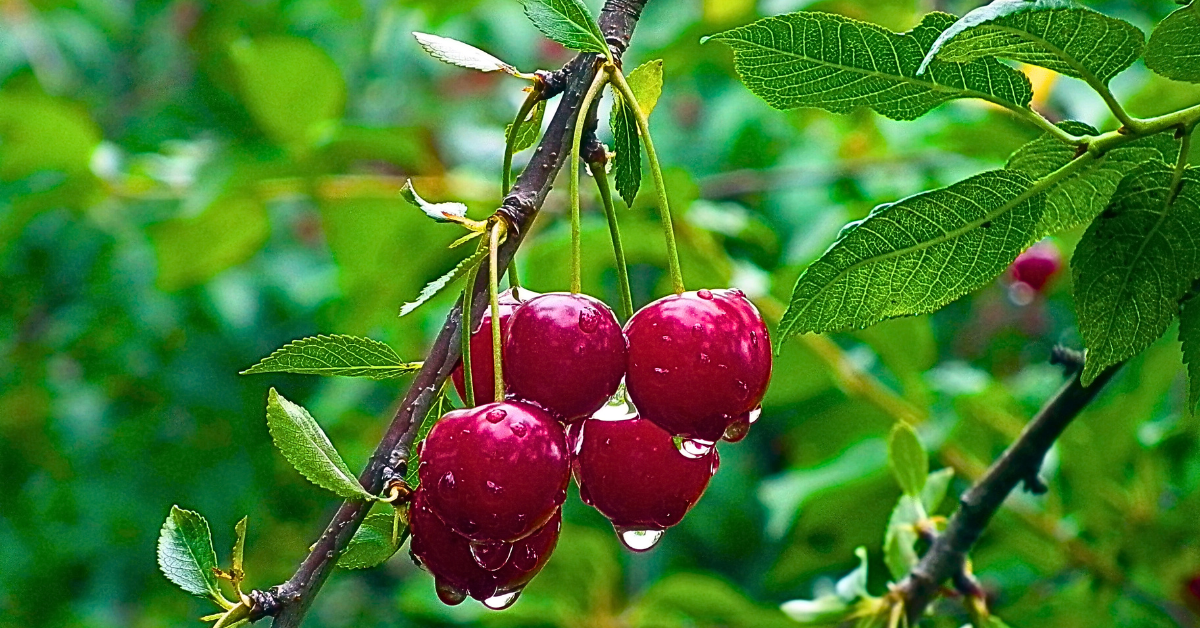Cherry Comfort: Melatonin-Rich Treats for Sleep Troubles
Let’s pause here for a second and chew on something—literally. Picture this: a ruby-red cherry, so ripe that it practically winks at you from the tree branch. Now, imagine that this glossy little fruit is not only a burst of summer on your tongue but also your ticket to the dreamiest slumber.
Science, with its lab coats and microscopes, has bowed down to nature’s tiny sleep conductor. And here we find ourselves at the intersection of delightful taste and scientific wonder, mapping out the terrain of cherries turned sleep maestros, prepped for a jaunt into research realms yet uncharted.
Strap in, friends, because we’re just getting warmed up on this nightly nightcap saga—a tale that’s sweeter than fiction and more comforting than your favorite bedtime story.
Can a bowl of cherries be the solution to your sleep problems?

In the quest for a night of restful sleep, cherries have emerged as an unexpected ally. According to a study by the Journal of Agricultural and Food Chemistry, cherries, particularly the tart Montmorency variety, contain significant quantities of melatonin—the hormone responsible for regulating sleep cycles. “Our results show that consuming cherries can increase melatonin levels in the body and lead to better sleep quality,” says study lead Dr. Russel J. Reiter.
How much melatonin can you get from cherries?
The same research unearthed a surprising fact: eating about a hundred grams of tart cherries could increase the urinary melatonin levels by a startling 16%. “It’s not just the melatonin, but the synergy between various compounds in cherries that contribute to a better sleep,” explains Dr. Reiter. When compared to supplementing with synthetic melatonin, cherries provide a delicious, natural alternative without the common side-effects of over-dosage.
What is the best way to consume cherries for sleep?
While fresh cherries are delightful, their seasonality drives enthusiasts to frozen, dried or juiced alternatives. Notably, a study from Louisiana State University found that drinking Montmorency tart cherry juice twice a day enabled an average of 84 more minutes of sleep time among study participants. Nutritionist Marge Perry corroborates, “The ease of drinking cherry juice makes it a practical, year-round option for combating insomnia.”
Are cherries effective for everyone?
“We’ve seen consistent results in diverse demographic groups,” says sleep researcher Dr. Wilfred Pigeon from the University of Rochester Medical Center. Whether it’s for shift workers struggling with irregular patterns or middle-aged adults grappling with insomnia, cherries offer a promising sleep aid. “It’s accessible and beneficial to most people, which makes it a universal remedy,” adds Dr. Pigeon.
What are the other health benefits of cherries?
Apart from melatonin, cherries are loaded with antioxidants and anti-inflammatory compounds. As the Journal of Natural Products reports, these substances can reduce muscle pain and support recovery post-exercise. Many athletes turn to cherry juice for these very reasons, not to mention the cardiovascular benefits outlined in several Nutrition Reviews articles. “Cherries are a multipurpose fruit, heart-healthy and recovery-friendly,” praises sports nutritionist Dr. Amy Bender.
How do cherries compare to other natural remedies?
When pitted against other natural sleep aids like valerian or chamomile, cherries stand out due to their dual action of improving sleep and providing nutritive value. “Valerian can aid sleep, but cherries nourish the body while promoting restorative sleep,” states herbalist Linda B. White, author of the The Herbal Drugstore. This comprehensive benefit positions cherries at a vantage point on the natural remedies scale.
What about the sugar content in cherries?
While cherries do contain sugar, their low glycemic index prevents rapid spikes in blood glucose levels—a factor endocrinologist Dr. Sarah Hallberg emphasizes. The fiber in cherries slows down the release of sugars, which is a good news for those watching their glucose intake,” she assures. This makes cherries an indulgence that’s sweet, yet smartly aligned with metabolic health.
Can melatonin-rich cherries enhance mood as well?
Research hints at a correlation between sleep and mood, and cherry consumption may play a beneficial role in this equation. “Improved sleep can lead to better mood states,” suggests Dr. Frank L. Greenway, chief of the outpatient research clinic at the Pennington Biomedical Research Center. As sleep quality betters with cherries, individuals often notice a positive shift in their daily mood and productivity.
How sustainable is cherry farming for sleep solutions?
In the context of sustainable agriculture, cherry farming presents a viable model for providing a natural sleep aid. According to the Agricultural Sustainability Institute at UC Davis, cherry orchards have a reasonably low environmental footprint when following integrated pest management practices. This means consumers can enjoy cherry-based sleep remedies with environmental conscience at ease.
Where does research on cherries and sleep go from here?
The promising initial findings have set the stage for more in-depth research. Brain health experts like Dr. Patrick McNamara of Boston University School of Medicine advocate for studies examining the long-term use of cherries in managing sleep disorders. “Understanding the mechanisms behind cherries’ sleep-inducing properties could unlock new potential in dietary approaches to sleep,” he predicts, signaling a fruitful future.
Cherry-Picked Slumber: The Orchard of Nightly Repose
Delving into the pastoral groves where cherries swell under the sun’s nurturing gaze, we uncover a symphony of processes that lead to their unseen nocturnal magic. The meticulous care of orchardists who, like watchful guardians, coax the growth of these ruby gems, mirrors the precision of researchers dissecting the fruit’s soporific qualities.
Each cherry, a vessel of potential tranquility, weaves a narrative that could rival the Sandman’s own handiwork. In the conversational hum of farm-side chats, anecdotal evidence of better sleep blends seamlessly with empirical data. With wit as sharp as a farmer’s pruning shears, experts are now poised to unravel the full tapestry of benefits nestled within these glistening drupes.
Thus, the journey of cherries from the branch to bedside is not just agricultural, but borders on the mythic—a modern lullaby in which every bite is a stanza, and every harvest, a promise of restful nights ahead.
